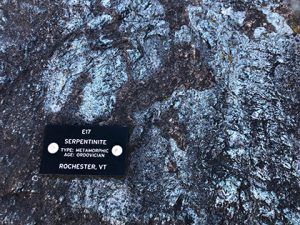
22 March 2019. Anthropocene. A pretentious concept, and all of a sudden, it is flooding public debate. Emanating from early cosmogenetic reflections on human cognition as a geologic force, it is related to ideas of the Noosphere; according to thinkers such as Pierre Teilhard de Chardin through its complex energy fundamentally interacting with and transforming other spheres, like the geosphere and the biosphere. Yet while the noosphere was conceived as vital and creative, environing the Earth, it now seems to have sedimented into a concealed stratum crystallising imagination.
The power and effect of humanity on every aspect of earthly existence is now so significant and beyond return that it apparently demands geological designation. Formal scientific acknowledgement is imminent. Influential scientific societies have already proposed to make the Anthropocene a formal unit of geological epoch divisions, a unit the temporality of which is counted in millennia. It is a powerful idea. Drawing attention to the indelibility of the human footprint, it answers to the demands for global if not imaginaries so explanations. It is, however, also a totalising concept, in one epochal sweep petrifying countless spatio-temporal entanglements and transgressions. What does this concept do but create an “a-temporal materiality dislocated from place and time,” furthermore a white-washed mythology disassociated from histories, languages and the movements of bodies over lands?
This is one of the bothering question raised by Professor in “Inhuman Geography” Kathryn Yusoff in her essay A Million Black Anthropocenes or None. I am reading the intense text as part of an Environmental Humanities Seminar organised by Anindita Banerjee in Comparative Literature. Yusoff’s thoughts are compelling, perhaps imperative, demanding positioning. She follows the traces pointed out by poets such as Canadian-Caribbean Dionne Brand and French-Caribbean Édouard Glissant, and she initiates her diffractive thought citing the former: “The problem was gravity and the answer was gravity.” There is a weight to the courses of events that took Earth to where it currently is, a weight that cannot be ignored.
“In its brief tenure,” Yussof writes, [the notion Anthropocene] has metamorphosed.” While widely embraced, it has rapidly been purposed and instrumentalized, “put to work as a conceptual grab,” cautionary, yes, potentially, but also imperially deterministic, an elemental expression of geology as a logic of a grab of lands and histories; a logic legitimating proprietary cuts. The geological cut is a master cut, unveiling earthly potentials and establishing transactional zones, beyond localities and subjectivities. Yusoff explores this cut, and how it presents a division of matter, a decisive division of life and non-life, of organic and non-organic; of raw and enriched. As an extractive cut it is also racial, extractive of certain bodies as part of a mineralogic surplus. The geological disruption therefore is a subjectless material agency of pure earthly force; an agency that lacks human agent, enabling the establishing of inhuman slavery as a geological axiom.
What Yusoff sets out to do is to crack open the mineralising logic of the Anthropocene and unveil its dubious origins. While The Anthropocene Working Group is struggling to define a Golden Spike or temporal marker for the beginning of this -cene, Yusoff draws attention to the ways in which the concept contributes to a monumentalising of the mythic anthropos as world maker/spiker, and also to its function as uncompromising evolutionary narrative of human origins, efficiently silencing its inherent inhuman temporalities and eventualities. But, claims Yusoff, “[t]he Anthropocene cannot dust itself clean from the inventory of which it was made;” the dross of material extraction and bodily chattel, and the extensive fungibility of land and labour that it nurtures as its guiding principle.
Out of proportion, noospheric, anthropo-scenic, Yusoff’s text expands in many directions, at the same time calling into attention current extractive excesses and increasingly aggressive prospective cuts, in South Sudan, in the Arctic region, and elsewhere; cuts, which somehow remain their legitimacy due to the “cold panic” (Isabelle Stengers) currently taking hold; the barbarian grammars of capture played out at multiplied frontiers of irreversibility. Opposing the White Geology of the Anthropocene, Yusoff asks “what different modalities of the human would come to light” through the change of tense, from the atemporal and determinist, to “a future real conditional” which would have, should have, will recognise all the billion abjected Black Anthropocenes? Would that present an “insurgent geology”? Or a “geo-Poethics” of sorts?
Yussoff quotes Glissant: “I build my language with rocks.”

